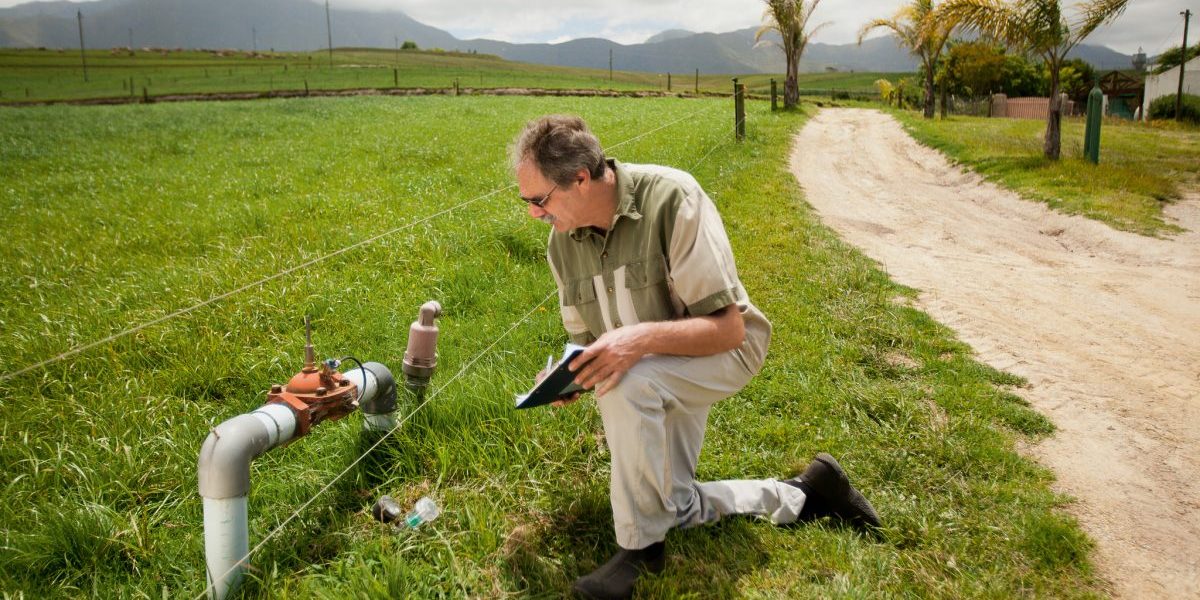Rattled by violent attacks and the crisis in Zimbabwe, white farmers in South Africa take up arms
A new rural defence strategy drafted by the Transvaal Agricultural Union (TAU), a conservative white commercial farmers’ organisation, seeks to organise all white farmers into support groups capable of rallying to each other’s defence.
The farmers and their families gather once a month at a remote training ground near Alldays in Limpopo Province, close to the Botswana-Zimbabwe border, for a series of lectures and exercises that comprise the ‘farm attack survival course.’ The purpose is to teach the members of the community how to protect themselves from what they call ‘the second genocide’ – more than 1,600 farmers have been murdered in South Africa since 1994.
More than 700 people have attended the survival course since it were launched a year ago. ‘People must learn how to defend themselves, but they must do it within the law,’ said Gideon Meiring, TAU’s security adviser.
The course reflects concern among many white farmers about what they regard as an ambivalent response from the South African government to the land crisis in Zimbabwe, where President Robert Mugabe has forcibly acquired nearly all of that country’s white-owned commercial farmland without compensation in the past four years.
What happened there, they say, is also already happening here, despite government assurances of physical protection and the legal sanctity of property rights. Many white farmers face restitution claims against their properties by the descendants of black people who say they were forcibly removed from their lands during the colonial and apartheid eras.
Defending the Land
Participants in the course range in age from 10 to 70 years old. They pay about $45 for three days of instruction and bring their own firearms and ammunition. Many of the instructors are former South African Defence Force specialists. The course has tacit approval from AgriSA, the main commercial agricultural association in South Africa.
‘We teach everything you need to know to defend yourself,’ said Annette Kennealy, who helps organise the course, ‘from the laws regulating firearms, firing at an attacker while driving and how to read the signs of an impending farm attack.’
Although a government inquiry into the farm murders found that the motive was overwhelmingly criminal, and independent studies have backed up that conclusion, the Afrikaans farming community remains unconvinced. They see the attacks as the worst assault on Afrikaners since Britain rounded up their ancestors in concentration camps during the 1899-1902 Anglo-Boer War.
A farmer’s wife and mother of two from the area of Makhado, formerly Louis Trichardt, Kennealy never goes anywhere without her 9mm pistol and .22 magnum. ‘There have been 1,635 white farmers who have been murdered during the past 10 years,’ she said. ‘The attacks are politically motivated. In many cases nothing is stolen. The attacks are often brutal and barbaric. There is a force driving it. It makes sense to put fear into the hearts of the white farmers to drive them from the land.’
Course lectures cover first aid; firearms and the law; and how to use an assortment of weapons such as AK-47s, pump-action shotguns and military-issue R-3s and R-4s. Instruction runs until midnight, after which everything stops for prayers, dinner and beer around the roaring campfire.
Strength in Numbers
Living on isolated tracts of land, often remote from neighbours and emergency services, Afrikaner farmers in Limpopo and other provinces are organising themselves into ‘steunkringe,’ or support circles, so they can come to one another’s rescue at a moment’s notice.
‘The security structure aims to link all the farming families together,’ Kennealy said. ‘One group responds to help another in a crisis situation. Someone will be responsible for closing the roads, another will be responsible for looking after the traumatised victims, and someone else will alert the police.
‘Generally, it’s families that come on the course. There are a lot of women, and the children usually start around age 10,’ she said. ‘During a farm attack, the family has to operate as a unit if it is to survive. We prefer to teach families when they are together. Rather than waiting until what happened in Zimbabwe happens here, we are putting everything in place now.’
Recalling the death of Martiens Steyn, 78, a white farmer who was casually murdered a few miles from here in April, allegedly by two men, two women and two children from a nearby squatter camp, Kennealy said: ‘The farmer was milking his cows when he was attacked. They tied him up and hit him repeatedly with a shovel before strangling him. His death was totally pointless.’
The attack hit close to home. ‘I have two little girls,’ Kennealy said. ‘I’m often on the farm on my own because my husband is away. I have to protect myself and my children. My girls are seven and nine. They have both been bought pellet guns and are being taught how to use them. We have no alternative but to protect ourselves. The government is not doing it for us.’
Bertus Otto, one of the course’s 20 instructors specialising in self-defence, said: ‘We hope to make people more confident in fending off farm attacks. If farmers take what we tell them seriously, they can defend themselves effectively. We are not some right-wing organisation. We are just trying to help people defend their lives and their property.’
It didn’t take long for Louise Kruger, a potato farmer and a mother of four, to master the ways of the gun. When she began the course, she struggled just to put the rounds of ammunition into her magazine. By the end, she was doing it like a professional. ‘I’m here to learn how to defend my children, my loved ones,’ Kruger said. ‘Black people want to take our land. They are attacking us. There is a real risk out there. This course helps me to face it.’








